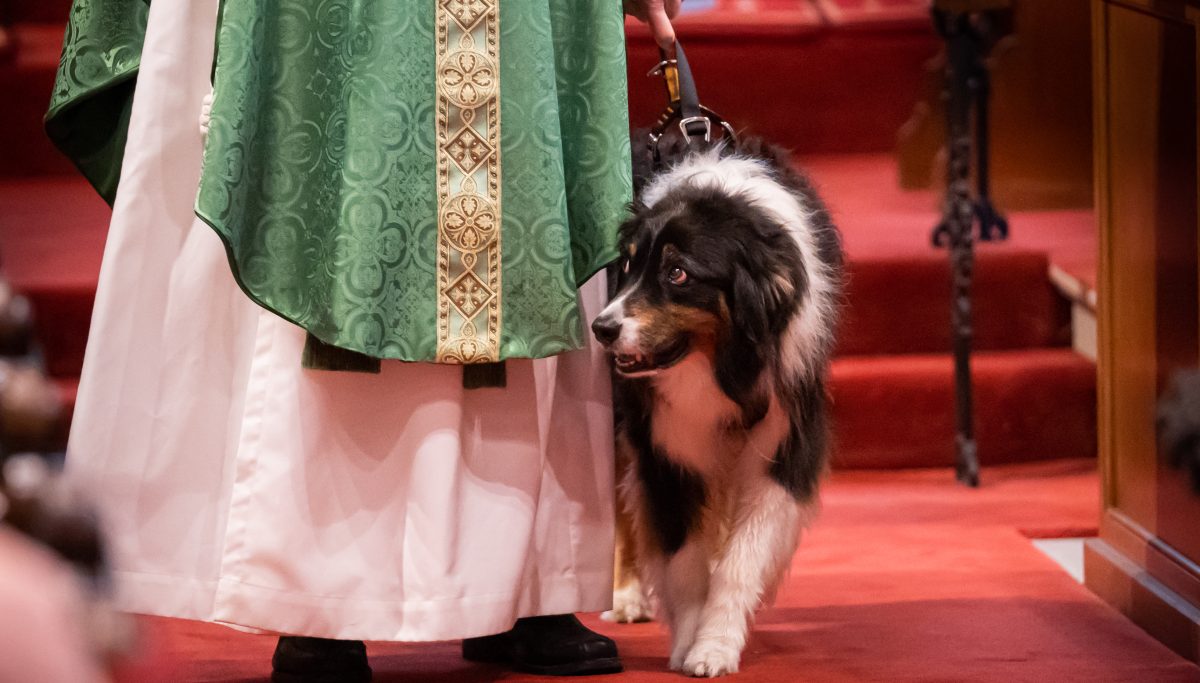“My heart is moved by all I cannot save.”
That’s a line from a poem by Adrienne Rich and I’ve been thinking about it this week and for this Maundy Thursday night in particular as Christians gather at the table of remembrance, the Eucharistic table of both memory and hope.
As Christians hear the story of Passover from Exodus this night and Jews are this week observing it, my heart is moved by all those ancient Hebrews who never made it out of Egypt, who died enslaved before Moses was even born.
I’m thinking about all the Jews and communists and gypsies and gay men who never made it out of Buchenwald or Dachau or Auschwitz before those camps were liberated, and my heart is so moved.
After this past year of pandemic anxiety, surely all of our hearts are moved by all we cannot save—by the more than 550,000 who have died just in the United States alone before they could be vaccinated, all those who are now so terribly ill.
This is why religion still matters, just a few of the reasons, in an age when so many prefer to be “spiritual” instead. Religion helps us mark time and name sacred space, just as God commanded Moses and Aaron to do at the first Passover—“this month shall mark for you the beginning of months,” God says (Exodus 12:1-2).
We human beings need such marking and naming to orient ourselves to each other and to the world around us; so many of us have felt so adrift in these days and weeks and months (how long, really?) of this seemingly endless pandemic precisely because of having so few markers for time, so few places to go for space.
For Christians, tonight begins the great three days of Holy Week—the “triduum,” as it’s called in Latin—and our worship continues unabated from this night until Easter morning. Tonight begins one extended liturgical celebration stretching over three days.
There is no dismissal after the Maundy Thursday service, nor after the Good Friday service, because these services do not end; the ordinary passage of time is caught up and transformed by the shared observance of the mystery of our salvation—the Table, the Cross, the Empty Tomb, all of it as one single arc of divine grace.
Christians also heard from Paul’s first letter to the Corinthians tonight in which he reminded them that what he received from the Lord about the Table is what he handed on to them (1 Cor. 11:12-26).
That phrase—“handed on”—is what tradition is, what memory means for religion, the handing on of that which binds us together here and now and also to those who came before us and to those who will come after us.
For the ancient Israelites and for Paul and for us, these vital reminders are rooted in the importance of memory itself.
The kind of memory we practice as religious people is not just the opposite of forgetting. The memory Christians practice at the Table is in response to the violence of fragmentation and division; it’s a re-membering of what has been dis-membered and torn apart—the kind of recalling that heals and makes whole.
This then is what Christians might embrace about religion itself on this holy night: marking time and naming space at the Table; receiving from those who came before us the love Jesus had for his friends and for us; handing on to those who will come after us that same love that we dare believe can reunite what has been torn apart, that can stitch us together into a single body with many members, that might actually offer healing to a world of violence.
I cannot imagine doing any of this on my own. I must, by some unimaginable grace, “cast my lot” with others, the ones who share food, dream of love, and leave no one behind.
This is why I cherish now those words from the poet Adrienne Rich. Here is what she wrote:
My heart is moved by all I cannot save:
so much has been destroyed.
I have to cast my lot with those
who age after age, perversely,
with no extraordinary power,
reconstitute the world.
As Christians at the Table, as Jews gathered for a meal, as the lonely, the broken, the castaway, and the frightened, may this Passover week and these tender services of the Christian Triduum bathe us in the love that will heal us.
All of us.
Together.




Than you for this very, very much. I have never been able to understand how we can keep going as Christians with all the ghastly suffering in the world-
AMEN!
Bless you, Dr. Jay!